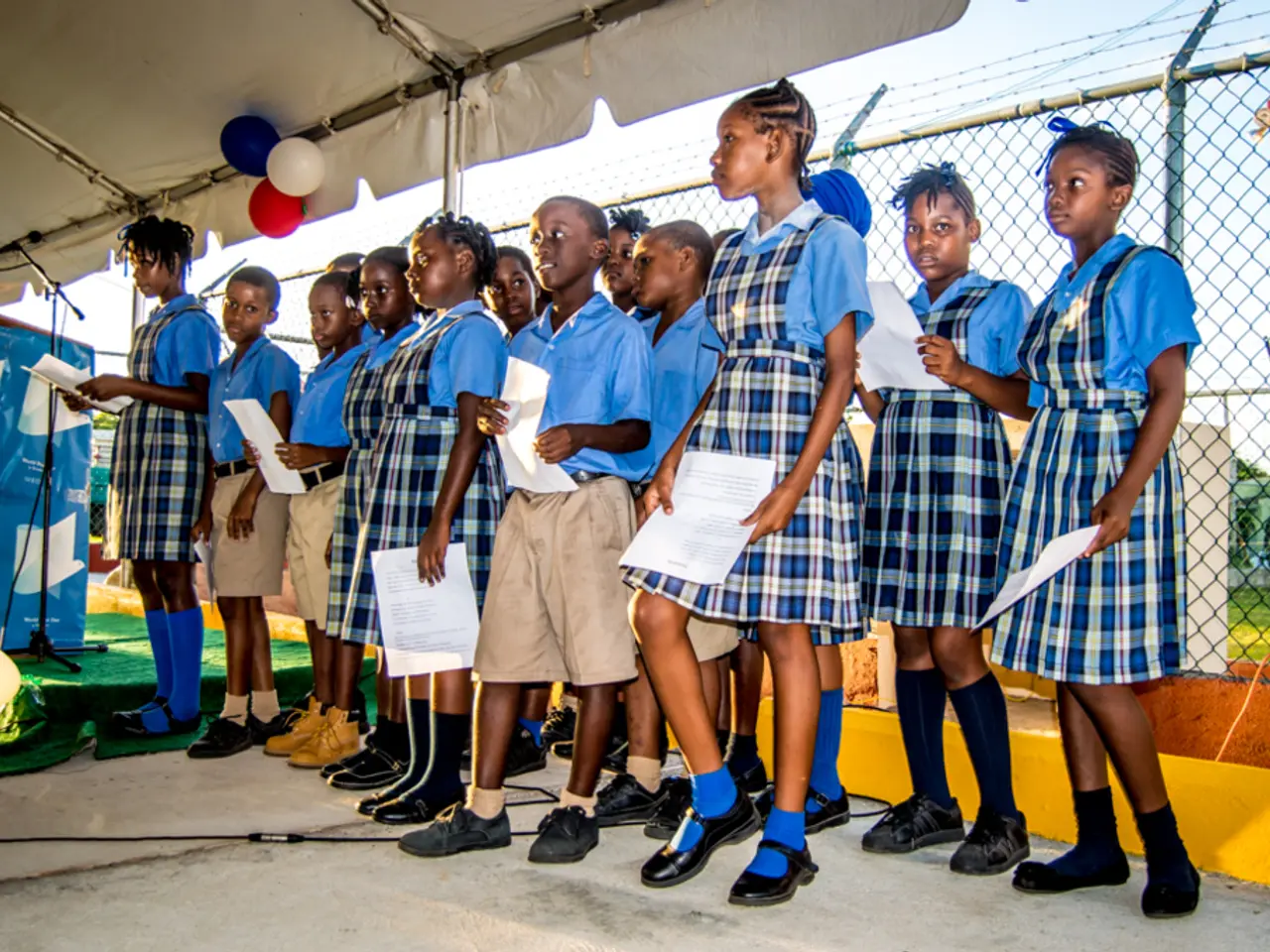Bergisch Gladbach Schools Adapt to Growing Classes and Lack of Kindergarten Experience
Bergisch Gladbach's schools face challenges as more children enter without kindergarten experience, leading to larger, more diverse classrooms, and an increase in repeat years. Pre-school skills are now integrated into lessons, and school heads plan for at-risk students.
In Bergisch Gladbach, primary school classrooms are growing, with some reaching 29 children. Many of these students have learning difficulties, making classrooms increasingly heterogeneous. Around 25% of children starting school in the district have treatable language abnormalities, further straining resources.
The flexible school entry phase in NRW allows children to complete their preparation in one, two, or three years, with the third year not counting towards their school career. However, more children are needing this extra time due to lacking precursor skills. These skills, such as recognizing rhymes, syllables, and shapes, along with social and emotional skills, are often learned in kindergarten. Without this pre-school experience, children struggle in first grade, leading to larger classrooms and more repeat years. The number of children repeating the first or second grade has risen significantly in recent years.
To address these issues, pre-school education has been integrated into lesson plans for the school entry phase. School principals also plan for second-graders at-risk of not being promoted, ensuring support is in place. However, the use of smartphones and other digital devices is affecting children's behavior and concentration in classrooms, adding another layer of complexity.
Bergisch Gladbach's schools are adapting to meet the challenges posed by increasing numbers of children entering without kindergarten experience. With larger, more diverse classrooms and more children needing extra time, schools are integrating pre-school education into lessons and planning for at-risk students. However, the impact of digital devices on children's behavior and concentration remains a concern.
Read also:
- Qur'an Emphasizes Fatherhood Through Stories of Prophets
- Capella Nursing Students Gear Up for Crucial FPX 4050 Assessments
- Comprehensive Overview of Addressing Traumatic Brain Injuries (TBIs)
- Enhanced Health Services Provisioned by San Diego Academic Health Partnership Continues During COVID-19 and Beyond




